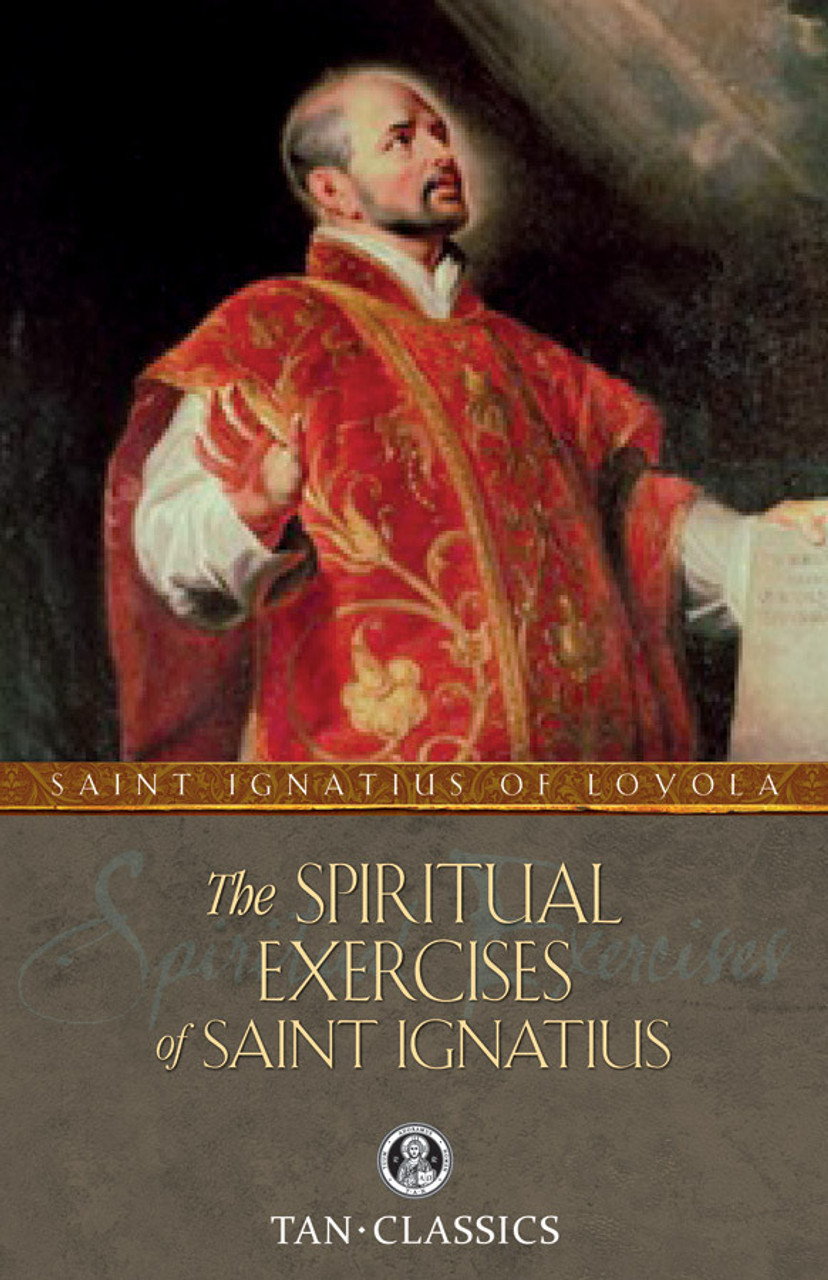The Spiritual Exercises of Saint Ignatius of Loyola leads readers along the path to holiness through rich prayer and meditation on Christ and virtue. Join Saint Ignatius below for an exercise on the three degrees of humility.
Preparatory Prayers
First prelude. Represent to yourself Our Lord Jesus Christ pointing to His Sacred Heart, and saying to us, “Learn of Me, because I am meek and humble of heart” (Matt. 11:29).
Second prelude. Ask the grace of a perfect renouncement of yourself, after the example of Jesus Christ.
Exercises
1. The exercise of the “Two Standards” points out the motives for following Jesus Christ. The exercise of the “Three Classes” points out the motives for following Him by giving ourselves to Him entirely and without reserve. In the exercise of the “Three Degrees of Humility,” we are about to consider in what this perfect gift of ourselves to Jesus Christ consists.
2. This exercise is called, in the first place, the “Three Degrees,” because it contains the three degrees of Christian perfection, which consist (1) in the firm resolution to avoid mortal sin, even at the risk of life; (2) in the firm resolution to avoid deliberate venial sin at any price; and (3) in the voluntary choice of whatever is most perfect for the service of God: in the second place, it is so called because these three degrees suppose the abasement and, as it were, the annihilation of the old man within us.
First Point
Text. The first degree of humility consists in perfect submission to the law of God, so that we should be ready to refuse the empire of the whole world, or even to sacrifice our lives, rather than willingly transgress any precept that obliges us under pain of mortal sin. This first degree is absolutely necessary for eternal salvation and is, as it were, the fruit of the exercises of the first week.
To establish ourselves firmly in it, we may recall what faith teaches us: (1) of the infinite malice of mortal sin, and the terrible vengeance with which the justice of God pursues it in time and in eternity; (2) of the supreme dominion of God, and His right to the obedience of every creature; (3) of the certainty and nearness of death, which will leave the sinner without resource in the hands of the living God; (4) the rewards that await in eternity the faithful observers of God’s law; (5) the sacrifices of the saints and martyrs, who renounced everything—fortune, pleasures, liberty, life itself—in order to escape mortal sin: “They were stoned, they were cut asunder, they were tempted, they were put to death by the sword” (Heb. 11:37).
End by turning back upon yourself. Examine if you are ready to sacrifice all rather than consent to mortal sin; if there is not some obstacle to this necessary disposition of heart, and what that obstacle is; and what means you are willing to take for the future, in order to arrive at this first degree and to strengthen yourself in it.
Second Point
Text. The second degree is more perfect; it consists in the indifference of the soul toward riches or poverty, honor or shame, health or sickness, provided the glory of God and salvation are equally secured on both sides; further, that no consideration of interest or temporal disgrace, not even the consideration of immediate death, should be capable of drawing us into deliberate venial sin.
This second degree is the consequence of the exercise on “The end of creatures.” In that exercise we saw that, according to the order of creation, creatures are only the means given to man to lead him to his true end. Reason tells us that, in the choice of means, man should only consider what brings him nearer or takes him farther from this end. Hence it follows that man should be indifferent to poverty or riches, honor or shame; and that to commit venial sin in order to escape shame or poverty is to sin against this indifference, is to reverse the order and convert the means into the end itself.
To arrive at this second degree, we may meditate—(1) on the malice of venial sin, the greatest of evils after mortal sin; (2) the hatred with which God pursues it and the torments with which He punishes it in the other life; (3) its effects with regard to the soul, in which it weakens charity and disposes to mortal sin; (4) the examples of the saints, of whom several have preferred to die rather than consent to one slight fault; (5) above all, the example of Jesus Christ. Examine what is your disposition toward venial sin as in the first point.
Third Point
Text. The third degree is the highest degree of Christian perfection. It consists in preferring, for the sole love of Jesus Christ, and from the wish to resemble Him more, poverty to riches, shame to honor and so on, even if on both sides your salvation and the glory of God were equally to be found. To arrive at this third degree of humility, we may consider—
1. Its excellence. It contains all that is most heroic in virtue, and the perfect imitation of Jesus Christ, who for love of us willingly embraced the ignominy of the cross: “Having joy set before Him, endured the cross, despising the shame” (Heb. 12:2).
2. Its happiness. To this degree is attached (1) peace of heart, since nothing can trouble him who professes to love all that nature fears and abhors; (2) intimate union with Jesus Christ, who communicates Himself fully to those souls who give themselves to Him without reserve; (3) the choice graces and blessings of God on all that we undertake for His glory: “The foolish things of the world hath God chosen, that He may confound the wise” (1 Cor. 1:27).
3. Its utility. This degree is the most certain way of salvation, because it snatches us away from all the dangers inseparable from fortune and honor; the shortest, because it delivers us at once from sin, and raises us to every virtue; finally, the most meritorious, because it is one uninterrupted course of sacrifices, and consequently of merits, for eternity.
Concluding Prayers
Anima Christi.
Pater Noster.
Ave Maria.
ooo
This article is taken from a chapter in The Spiritual Exercises of Saint Ignatius by Saint Ignatius of Loyola which is available from TAN Books.









